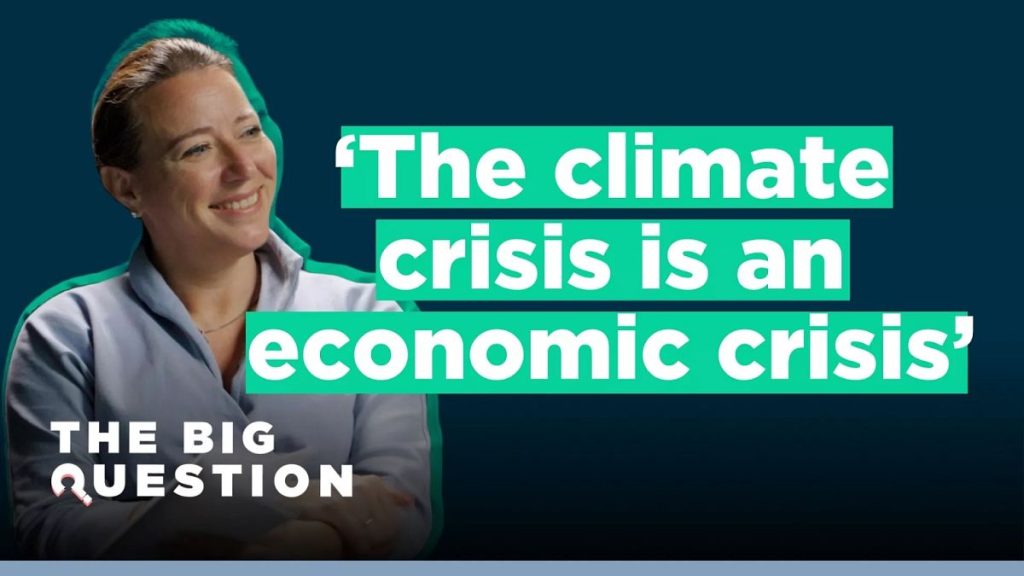The Economic Imperative of Corporate Sustainability: Unveiling Trillion-Dollar Opportunities
The global landscape of corporate responsibility is undergoing a dramatic transformation, driven by the increasing recognition of the interconnectedness between environmental sustainability and economic prosperity. Major corporations, representing a significant portion of the global economy, are accelerating their emissions reduction efforts, showcasing a growing commitment to mitigating climate change. This shift is not merely an act of altruism but a strategic response to the mounting evidence that sustainable practices unlock substantial economic benefits, potentially adding trillions of dollars to global GDP while mitigating the risks of significant economic downturn.
CDP, a leading non-profit organization providing a global disclosure platform for environmental data, plays a crucial role in this transition. Working with corporate giants like Walmart and Apple, CDP collects and analyzes data, revealing a compelling correlation between emissions management and economic growth. Projections indicate that effective emissions management could boost global GDP by 7% by 2030, while conversely, inaction could lead to a 20% decline in GDP over the next two decades in various regions. This stark contrast underscores the urgency and importance of integrating sustainability into core business strategies.
The key to unlocking this economic potential lies in the transparent disclosure of credible environmental data and the establishment of achievable, science-based targets. This approach, as demonstrated by several European companies, has translated into millions of euros in savings and new revenue streams. CDP’s analysis identified $3.47 trillion in potential business opportunities within Europe alone, arising from sustainable transformations. These opportunities, representing a significant return on investment, require only $620 billion in investment, highlighting the compelling business case for sustainability.
Concrete examples illustrate the tangible benefits of data disclosure. Heineken, the Dutch brewing company, leveraged its climate disclosure to improve its credit rating, resulting in a €15 million reduction in capital costs. Other companies have identified opportunities in research and development, leading to innovative and sustainable product offerings that resonate with environmentally conscious consumers. This shift towards sustainability is not merely a cost-saving exercise; it’s a catalyst for innovation and market differentiation.
The demand for credible environmental data is rapidly increasing, driven not only by businesses but also by investors and the public. Over 700 major investors, representing $142 trillion in assets, are actively seeking this information through CDP. This growing investor interest underscores the increasing importance of sustainability as a key factor in investment decisions. Furthermore, public awareness of environmental issues is on the rise, leading to greater scrutiny of corporate practices and a growing preference for companies that demonstrate a commitment to sustainability.
However, data disclosure alone is insufficient. Actionable steps to reduce emissions are essential to realize the economic benefits of sustainability. CDP emphasizes that while many companies disclose their transition plans, less than 1% have credible targets. This highlights the urgent need for companies to move beyond reporting and actively implement strategies to reduce their environmental impact. The disclosure of data serves as a crucial first step, providing transparency and accountability, but it must be coupled with concrete actions to drive meaningful change.
CDP’s role as a global disclosure platform is pivotal in this process. With over two-thirds of the world’s market capitalization reporting to CDP, the organization possesses a unique vantage point to track corporate progress on sustainability. CDP’s comprehensive data collection goes beyond basic carbon accounting to encompass Scope 1, 2, and 3 emissions, water usage, and impacts on nature, providing a holistic view of corporate environmental performance. The data reveals a positive trend: companies that disclose through CDP typically experience a 7-10% reduction in emissions within two years. This demonstrates the powerful impact of transparency and data-driven decision-making in driving corporate sustainability.
In conclusion, the pursuit of corporate sustainability is not a zero-sum game between environmental responsibility and economic growth. Instead, it represents a powerful synergy where responsible environmental stewardship unlocks substantial economic opportunities. The transparent disclosure of credible environmental data, coupled with the implementation of science-based targets, is essential to realize these benefits. Investors, consumers, and the public are increasingly demanding transparency and action on climate change, creating both pressure and incentives for companies to embrace sustainability. CDP’s work in collecting and analyzing environmental data plays a crucial role in facilitating this transition, providing valuable insights that empower businesses, investors, and policymakers to make informed decisions that drive a more sustainable and prosperous future. The economic imperative of corporate sustainability is clear: embracing responsible environmental practices is not just the right thing to do, it’s the smart thing to do.














